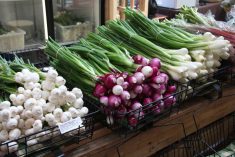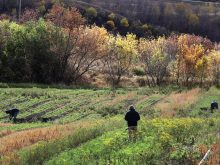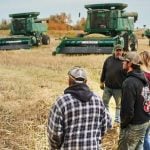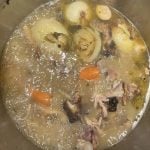OSGOODE, Ont. – Have you heard the one about the dairy farmer and the heifers?
Paul Mussell, an Ottawa-area farmer with an occasional off-farm gig as a stand-up comedian, hits the stage and tells his audience about the joys of being a dairy farmer.
It’s a great job, he says. He gets up in the morning, puts on casual clothes and walks to work.
“I open the door to my office and I shout out, ‘good morning girls. I’m here to pull your teats.’ ”
Read Also
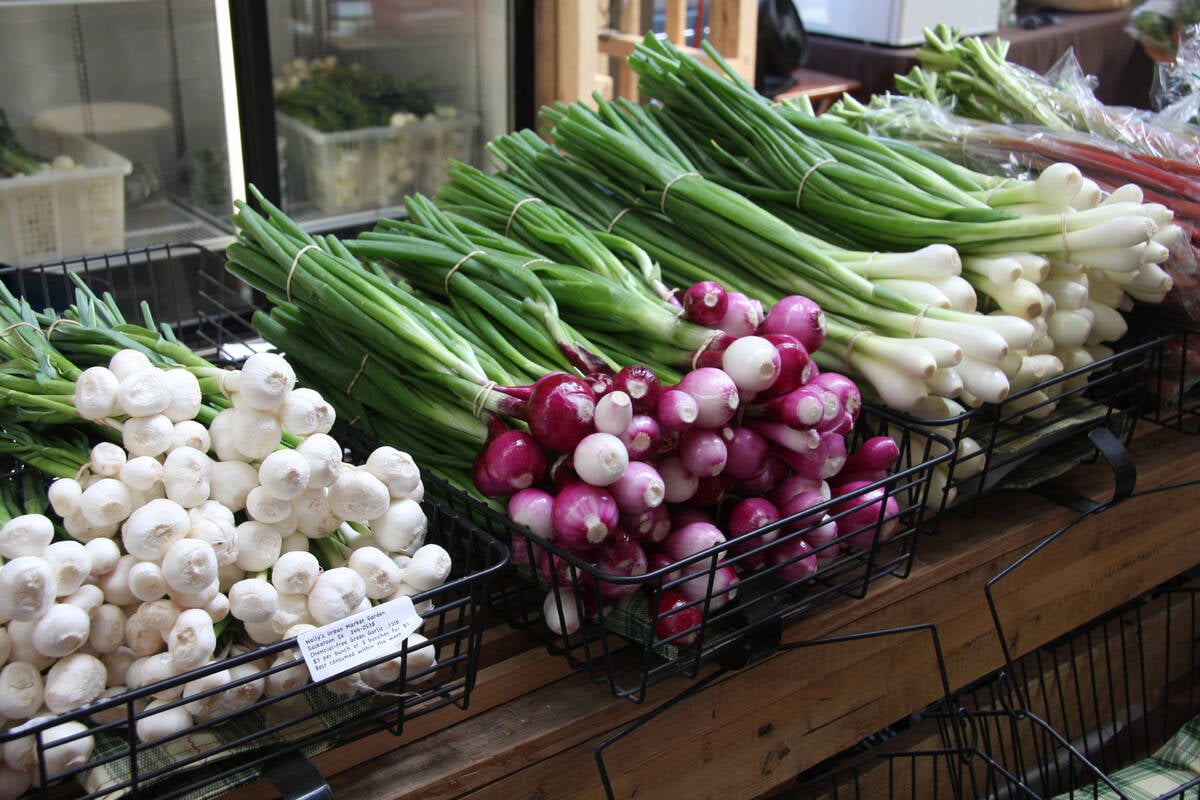
Starting a small business comes with legal considerations
This article sets out some of the legal considerations to start a business to sell home-grown product, such as vegetables, herbs, fruit or honey.
When the laughter dies down, he adds: “And not get sued.”
One of the jokes on his 2004 CD Laughing Till the Cows Come Home is about city people who approach him after a show to ask if he’s a real farmer.
“Why, have you met many fake ones?”
Indeed, Mussell is a “real” farmer, the fourth generation to operate the family farm south of Ottawa that turns 100 this year.
Son Ryan, 23, returned from agriculture school last year to become the fifth generation on the farm.
It was a dairy operation with 35 often award-winning milking cows until two years ago when Mussell became disillusioned with the costs and politics of the dairy industry and sold his quota.
“I don’t know if it was mid-life crisis or not but I was depressed about the business. The dairy industry is very heavy handed. Policy comes down and that’s it.”
Ryan was interested in trying goats so the family took the plunge, buying a 200-head herd of Saanen goats to supplement the cash crops of corn, soybeans, wheat and maple syrup that are produced on the almost-300 acre farm beside the Rideau River. In the farm’s office are well-thumbed books about goat breeds, breeding and care.
“You need at least 300 head to be viable, but we are just starting and the learning curve is very steep,” he said.
“I certainly can see expanding but we have to be certain we understand the business.”
First, he has to understand the animal.
“They are smaller and cuter and easier to handle,” he said.
However, there also are down sides.
Mussell said the goats can have a high mortality rate and can be unpleasant or mean-spirited.
“If one gets sick or goes down, the strong ones often will go after the weaker ones.”
Once the Mussells got to know the animals, they had to discover the business – finding a dairy processor able to take goat milk, veterinarians, feed suppliers and other input providers for a sector that is small in Ontario.
“It is very different from dairy because dairy is huge and there are neighbours and networks you can learn from,” he said.
“This is very different and you are a bit isolated. The first thing was to get the team in place. But it is exciting, something new and great to have the whole family involved in the operation.”
In his spare time, Mussell runs an animal control business in his community, getting beavers out of swimming pools, starlings out of vents and skunks out from under verandahs.
And then there is his 15-year career as a sometime stand-up comedian, doing as many as 20 shows a year at conventions, banquets and other meetings.
Like the goat business, he said his comedy is aimed at a unique market – people who do not believe comedy has to be vulgar to be funny.
“All my comedy is clean so it is a niche market,” he said.
But it is potentially a large niche.
He already has a market at family friendly events, hunting conventions and agricultural meetings such as the Manitoba Cattle Producers’ Association annual general meeting in 2007.
Mussell, who is a member of an evangelical church in the Ottawa area, thinks there is also an untapped potential at Christian conventions.
His comedy career started a decade and a half ago at a Holstein convention in Toronto. The featured after-dinner comedian was a bust and after he got the hook, the Ottawa area farmer offered to fill in some time trying out lines he had been writing.
They drew some laughs and a comedy career was launched.
Well, not quite that simply.
He started at Ottawa comedy clubs and quickly soured on the experience.
“They don’t pay well, there is a lot of amateur competition, comics are a pretty ruthless bunch and so much of it was vulgar,” he said.
Many of his lines come to him when he is on the tractor or milking.
Mussell figures comedy will be a more significant financial underpinning as he winds down his involvement in the farm operation.
But for the moment, it is a sideline. The farm, and stabilizing the goat operation, is the core project.
“There is so much to learn,” he said.
“This is our first year and last week we had 60 babies on bottles three times a day. We’ve had to get new equipment, modify some space, learn about the industry and much of that without a real industry support system.”
One unexpected local support system came last year when men from his church helped him build a new barn to house the goats.
Once the busy birthing season is over and the kids are more independent, the Mussells will travel to other goat farms looking for tips from industry veterans.
“It is stressful but wonderful,” Mussel said.
“It’s exciting, it’s new, it’s fresh. And surely there will be some (comedy) material in this.”


